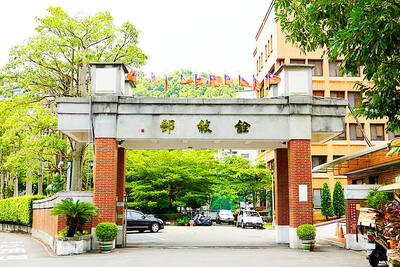Chinese hackers are suspected of invading the network of a Taiwanese online job bank before the Mid-Autumn Festival holiday last week and stealing the personal information of more than 5.92 million job applicants, a preliminary investigation by national security officials showed.
The information was posted for sale on the “dark Web” — Internet networks that require specific software, configurations or authorization to access — under the account name “rootkit” for US$500 to US$1,000, officials said, adding that they found the information security breach by accident during a “deep Web” search on Saturday night.
Investigators suspected that the hackers were from China, as they wrote in simplified Chinese that they succeeded in hacking into the system of a well-known online job bank in Taiwan at the end of last month and were willing to sell the stolen personal data.
In addition to file numbers, the leaked information also included job applicants’ national identification card numbers, names, genders, birthdays, e-mail addresses, landline telephone numbers, mobile phone numbers, account usernames and home addresses, the officials said.
The oldest job seeker was born in 1962, whereas the youngest was born in 2000, they added.
Given that Taiwan has a working population of 12 million people, the incident has affected close to half of them, making it potentially the severest information security breach in the country, the officials said.
The consequences would be dire if the data were exploited by the Chinese Communist Party for propaganda purposes, they added.
The officials questioned the motive behind the information security breach, as the incident happened before the Mid-Autumn Festival holiday long weekend and China’s National Day, which fell on Thursday last week, adding that they are issuing warnings and conducting a comprehensive investigation into the case.

Taiwan Semiconductor Manufacturing Co (TSMC, 台積電) is expected to start construction of its 1.4-nanometer chip manufacturing facilities at the Central Taiwan Science Park (CTSP, 中部科學園區) as early as October, the Chinese-language Liberty Times (the Taipei Times’ sister newspaper) reported yesterday, citing the park administration. TSMC acquired land for the second phase of the park’s expansion in Taichung in June. Large cement, construction and facility engineering companies in central Taiwan have reportedly been receiving bids for TSMC-related projects, the report said. Supply-chain firms estimated that the business opportunities for engineering, equipment and materials supply, and back-end packaging and testing could reach as high as

CHAMPIONS: President Lai congratulated the players’ outstanding performance, cheering them for marking a new milestone in the nation’s baseball history Taiwan on Sunday won their first Little League Baseball World Series (LLBWS) title in 29 years, as Taipei’s Dong Yuan Elementary School defeated a team from Las Vegas 7-0 in the championship game in South Williamsport, Pennsylvania. It was Taiwan’s first championship in the annual tournament since 1996, ending a nearly three-decade drought. “It has been a very long time ... and we finally made it,” Taiwan manager Lai Min-nan (賴敏男) said after the game. Lai said he last managed a Dong Yuan team in at the South Williamsport in 2015, when they were eliminated after four games. “There is

Democratic nations should refrain from attending China’s upcoming large-scale military parade, which Beijing could use to sow discord among democracies, Mainland Affairs Council Deputy Minister Shen You-chung (沈有忠) said. China is scheduled to stage the parade on Wednesday next week to mark the 80th anniversary of Japan’s surrender in World War II. The event is expected to mobilize tens of thousands of participants and prominently showcase China’s military hardware. Speaking at a symposium in Taichung on Thursday, Shen said that Chinese Minister of Foreign Affairs Wang Yi (王毅) recently met with Indian Prime Minister Narendra Modi during a visit to New Delhi.

FINANCES: The KMT plan to halt pension cuts could bankrupt the pension fund years earlier, undermining intergenerational fairness, a Ministry of Civil Service report said The Chinese Nationalist Party (KMT) caucus’ proposal to amend the law to halt pension cuts for civil servants, teachers and military personnel could accelerate the depletion of the Public Service Pension Fund by four to five years, a Ministry of Civil Service report said. Legislative Speaker Han Kuo-yu (韓國瑜) on Aug. 14 said that the Act Governing Civil Servants’ Retirement, Discharge and Pensions (公務人員退休資遣撫卹法) should be amended, adding that changes could begin as soon as after Saturday’s recall and referendum. In a written report to the Legislative Yuan, the ministry said that the fund already faces a severe imbalance between revenue